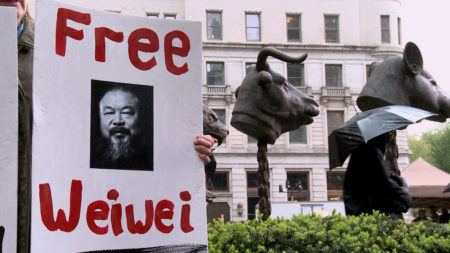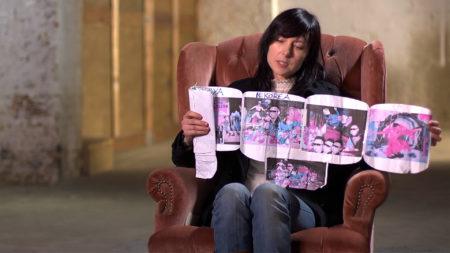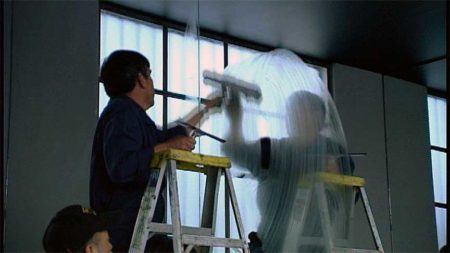Continue playing
(Time remaining: )
Play from beginning
Continue playing "{{ controller.videos[controller.getVideo(controller.currentVideo)].segmentParentTitle}}"
{{controller.videos[controller.getVideo(controller.currentVideo)].title}} has ended.
Gramsci & PasoliniAlfredo Jaar
“There are two Italian thinkers that I admire greatly,” says artist Alfredo Jaar as he stands between the rhythmic bars of his 2004 installation Infinite Cell. Jarr is referring to Antonio Gramsci and Pier Paolo Pasolini. Gramsci, a Marxist theorist, is best remembered as a martyr of communist ideology, having died while imprisoned by Benito Mussolini during the Fascist period. The latter, Pasolini, was an a film director, poet, writer and intellectual. “In one of Pasolini’s writings, he says that culture is a prison,” Jarr recalls, “and we intellectuals, we have to get out of that prison.”
Infinite Cell refers to both Pasolini’s metaphorical prison of thought and the literal prison in which Gramsci died for his anti-fascist beliefs. Serving as a symbol for intellectualism in Italy today, the vacant space also represents a void—the absence of a culture capable of revolutionary debate.
More information and creditsCredits
Producer: Susan Sollins & Nick Ravich. Camera: Bob Elfstrom. Sound: Ray Day. Editor: Lizzie Donahue. Artwork courtesy: Alfredo Jaar. Thanks: Fundación Telefónica, Santiago, Chile.
Closed captionsAvailable in English, German, Romanian, Italian, Japanese, Korean, Chinese, Italian
Through the Art21 Translation Project, multilingual audiences from around the globe can contribute translations, making Art21 films more accessible worldwide. Translate this video now.
Interested in showing this film in an exhibition or public screening? To license this video please visit Licensing & Reproduction.
Alfredo Jaar creates installations, photographs, films, and community-based projects that explore the public’s desensitization to images and the limitations of art to represent events such as genocides, epidemics, and famines. Jaar’s work bears witness to military conflicts, political corruption, and imbalances of power between industrialized and developing nations. Subjects addressed in his work include the holocaust in Rwanda, gold mining in Brazil, toxic pollution in Nigeria, and issues related to the border between Mexico and the United States.
Art & Activism
Preview






